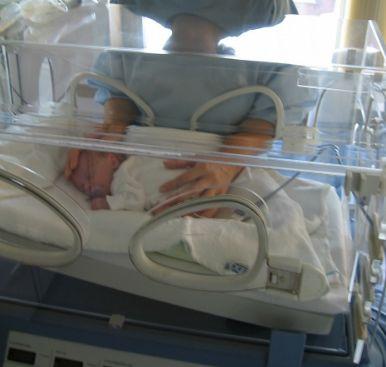
Published on: 07/07/20
The technique reduced long-term disability according to a 10-year follow-up study by Bristol researchers.

Published on: 07/07/20
Babies treated with the ‘brain washing’ treatment were twice as likely to survive without severe learning disabilities when compared to infants given standard treatments.
Pioneered in 1998 and trialled from 2003, the therapy aims to reduce disability in premature babies with serious brain haemorrhage by washing out the ventricles in the brain to remove toxic fluid and reduce pressure. The technique is called Drainage, Irrigation and Fibrinolytic Therapy’ (DRIFT)
The research team found that the pre-term babies who received the DRIFT treatment were almost twice as likely to survive without severe cognitive disability than those who had received standard treatment. They also found that infants given the treatment were also more likely to attend mainstream education.
Dr Luyt, the DRIFT10 study’s lead author and Reader in Neonatal Medicine at Bristol Medical School, said: “Bleeding in the brain is one of the most serious complications of preterm birth and premature babies are particularly at risk of bleeding, the condition can cause significant brain injury leading to subsequent severe learning disabilities.
“While a two-year follow-up study showed reduced rates of severe cognitive disability, it was important for us to assess whether the DRIFT intervention had longer-term benefits.
“The results of this study clearly demonstrate that secondary severe brain injury is reduced in preterm infants by using this neonatal intervention, and importantly, this is sustained into middle school-age.
“We hope that these results will be used to inform UK and international healthcare guidelines and support implementation of DRIFT as a clinical service to help improve outcomes for vulnerable babies.”